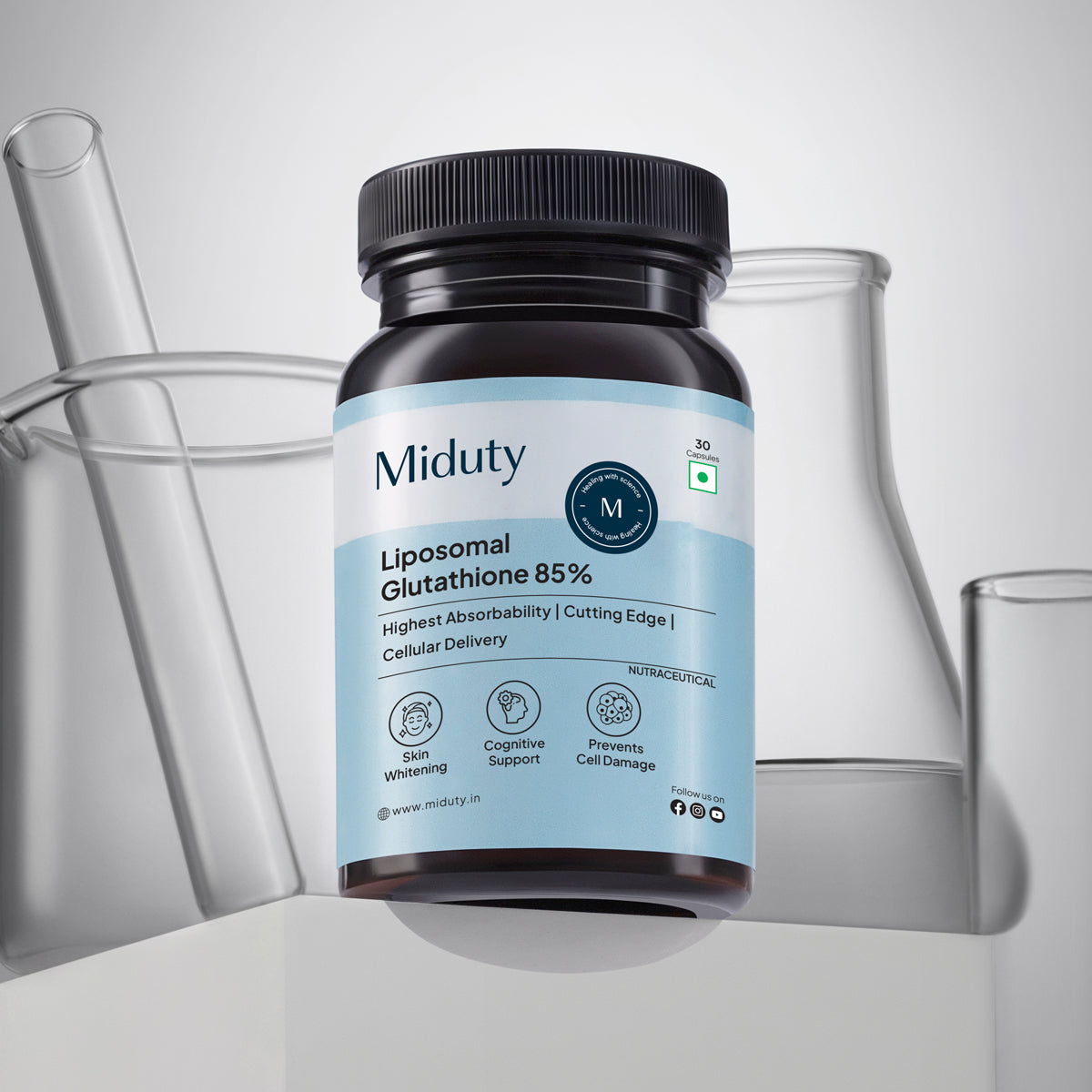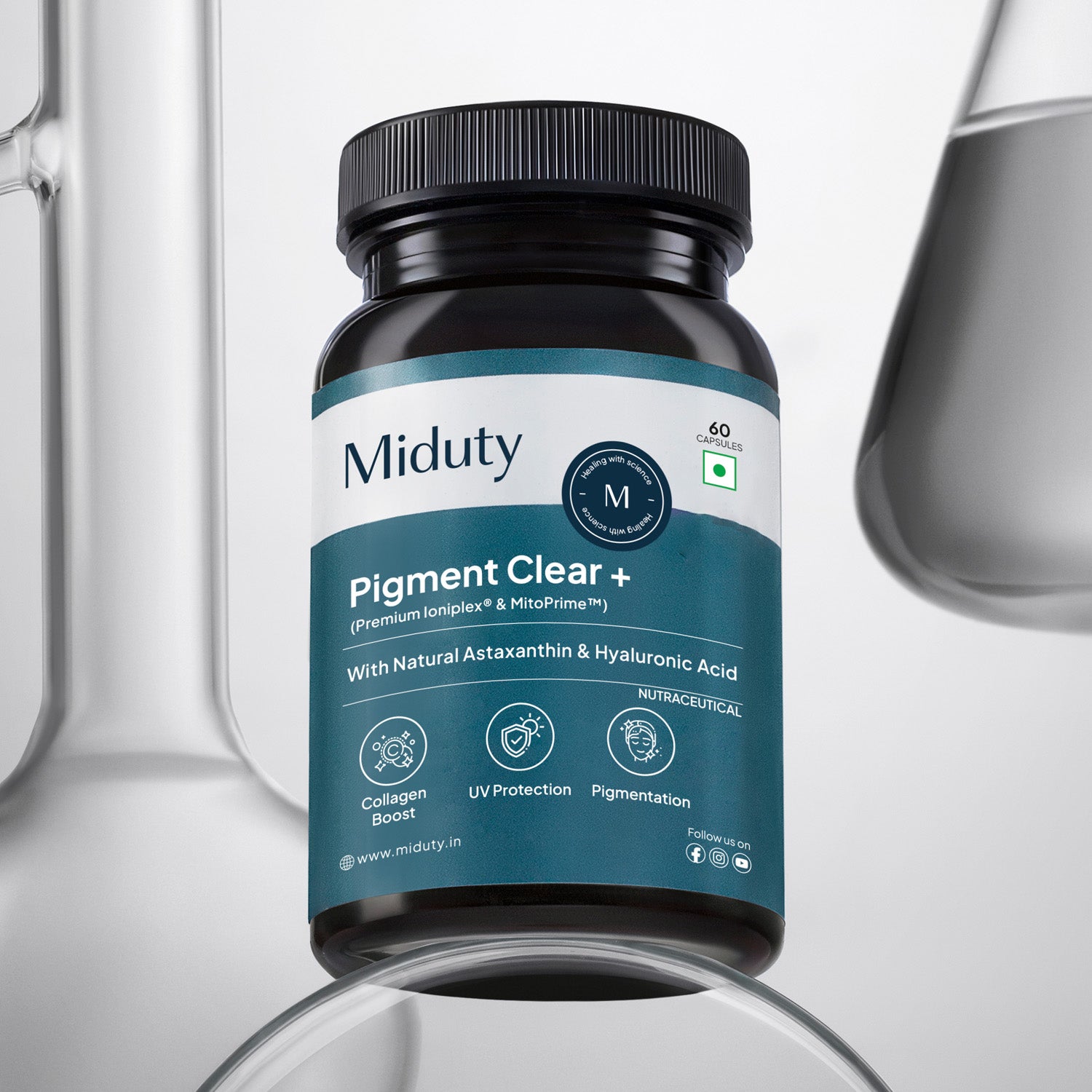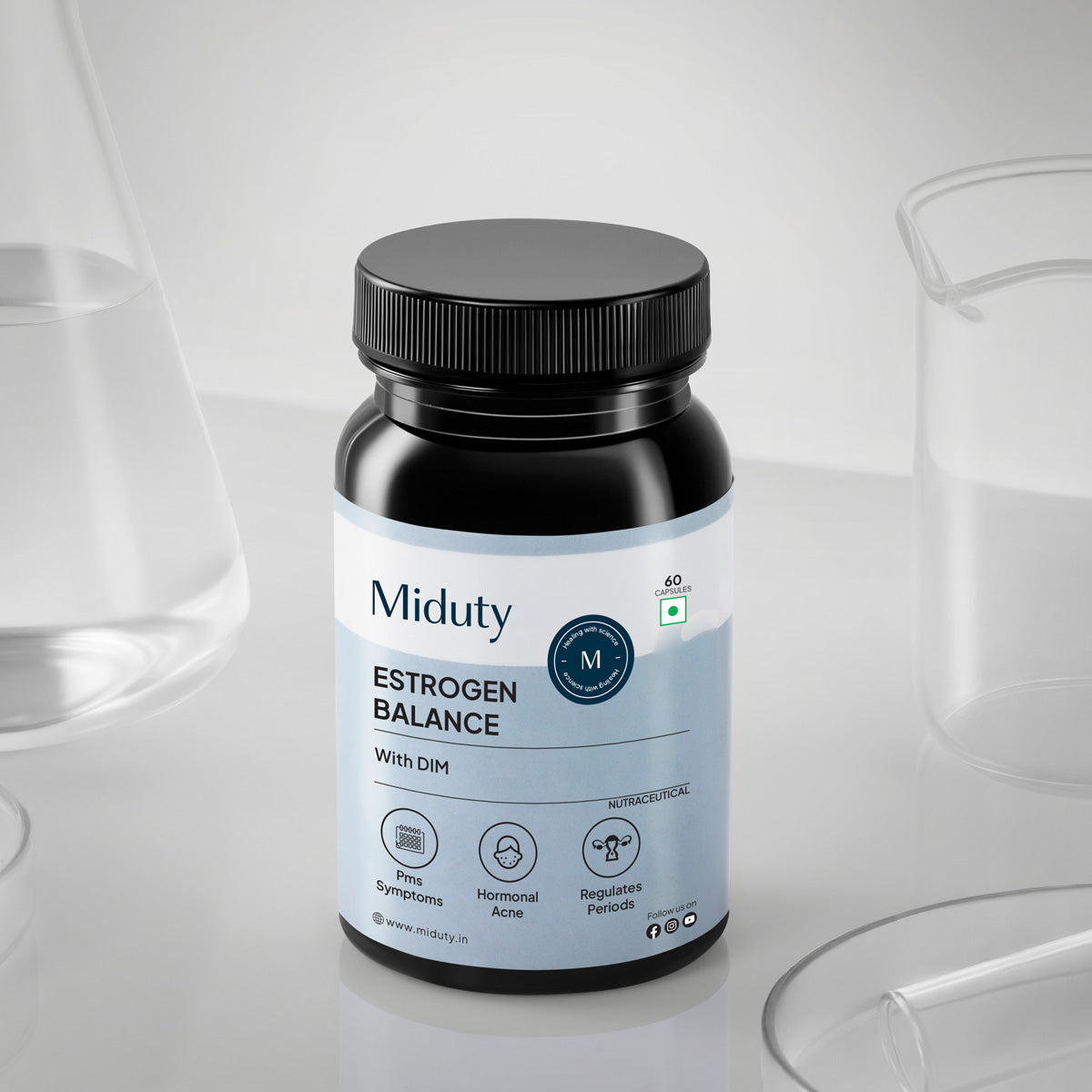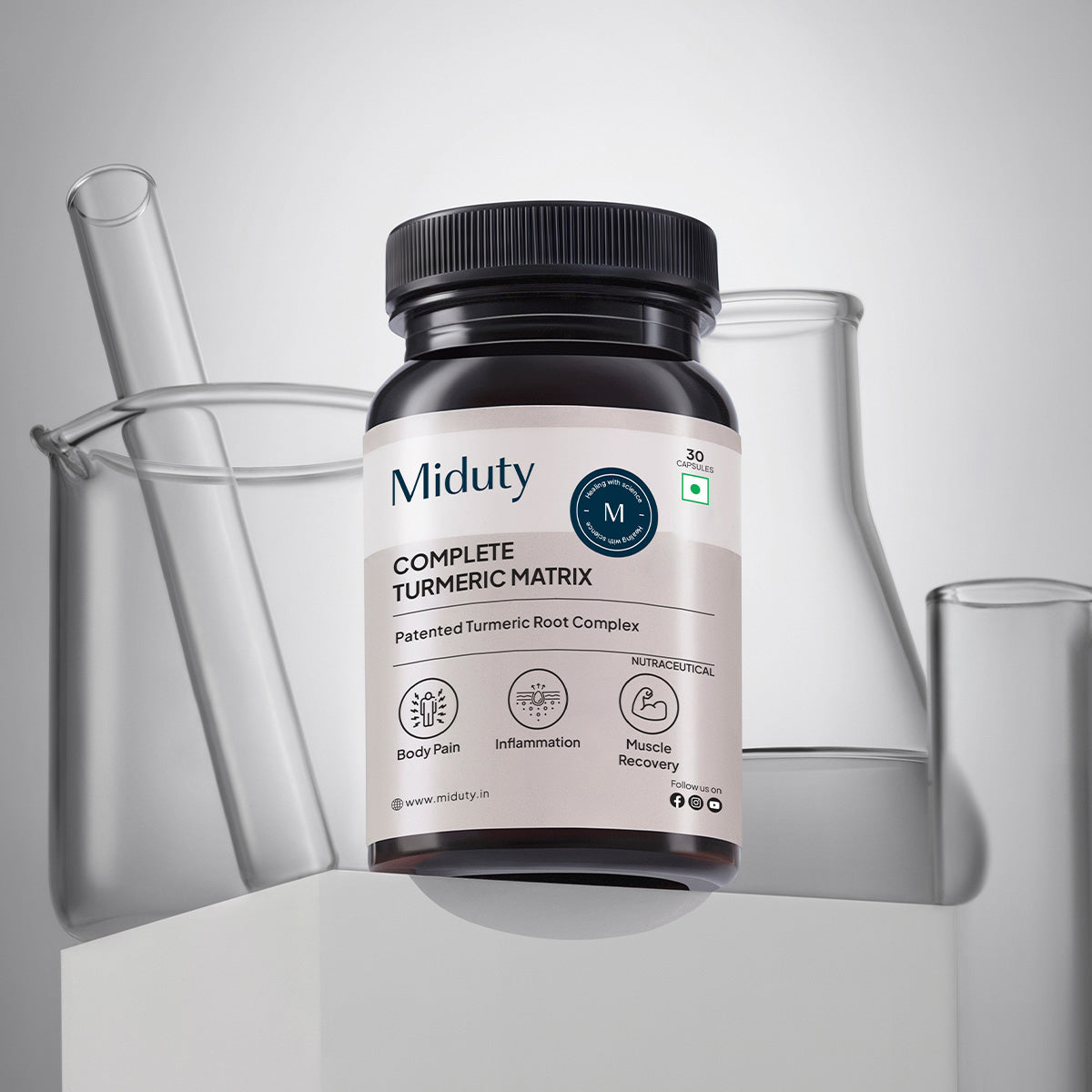
Liver and Skin Pigmentation: What’s the Connection and How to Address It?
Key Takeaways
1. Your Skin Reflects Your Liver: Dark spots, melasma, and uneven skin tone may signal your liver is overloaded with toxins or hormones.
2. Fatty Liver = Patchy Skin: Non-alcoholic fatty liver disease can trigger pigmentation issues like brown patches, especially on the face and hands.
3. Estrogen Build-Up Shows on Skin: A sluggish liver can't break down excess estrogen leading to melasma and sun-sensitive darkening.
4. Fix the Liver, Brighten the Skin: Supporting your liver with foods like leafy greens and herbs like milk thistle can help reverse pigmentation naturally.
Dry Skin? Acne? Pigmentation? These could all be early signs your liver is calling for help, don't ignore them.
Skin pigmentation issues are among the most common dermatological concerns people face today. From dark spots and uneven skin tone to the dreaded age spots and melasma, pigmentation problems can be distressing. But did you know that the health of your liver plays a significant role in the appearance of your skin? Yes, the liver and skin pigmentation are intricately linked. In this article, we'll delve into how liver function affects skin pigmentation, the signs to watch out for, and what you can do to improve both your liver and skin health.
The Role of the Liver in Your Body
The liver is a powerhouse organ, crucial for detoxification, metabolism, and overall body regulation. It processes and filters out toxins, breaks down fats, stores vitamins, and produces important proteins like albumin and clotting factors. A healthy liver ensures the body functions efficiently by maintaining the balance of hormones, nutrients, and chemicals in your bloodstream.
However, when the liver becomes overloaded or is functioning poorly, it struggles to eliminate toxins and process nutrients, leading to a variety of health issues including those visible on the skin. One of the most concerning results of a sluggish or damaged liver is the development of skin pigmentation problems.
How the Liver Affects Skin Health and Pigmentation
A well-functioning liver detoxifies the body by breaking down harmful substances and sending them to be excreted in bile or urine. When the liver is overwhelmed, it can't efficiently remove these toxins. As a result, these toxins may accumulate in the bloodstream, affecting various organs, including the skin. The skin may start to reflect this internal imbalance through pigmentation changes, such as dark patches or uneven skin tone.
1. Hormonal Imbalances and Pigmentation
The liver plays a pivotal role in hormone regulation, especially in breaking down excess estrogen and other hormones. An impaired liver can result in hormonal imbalances, leading to issues like pigmentation. For example, high estrogen levels can cause melasma (also known as the "mask of pregnancy"), which is a common pigmentation disorder. When the liver is not effectively processing and detoxifying excess hormones, the skin may become more sensitive to sunlight, leading to darker pigmentation in certain areas.
2. The Link Between Fatty Liver Disease and Skin Pigmentation
One of the most prominent liver-related conditions that contribute to skin pigmentation problems is fatty liver disease (NAFLD). Nonalcoholic fatty liver disease occurs when fat builds up in the liver, impairing its function. As the liver's detoxifying capabilities diminish, toxins build up in the body, and this can manifest on the skin in the form of dark spots, especially on the face, neck, and hands.
Pigmentation problems linked to liver dysfunction often show up as yellowish or brownish patches. This is sometimes associated with jaundice, which occurs when the liver cannot process bilirubin (a substance produced from the breakdown of red blood cells). Jaundice typically results in a yellowing of the skin and eyes but can also cause pigmentation changes.
Signs That Your Liver Might Be Affecting Your Skin
When your liver is struggling, it often sends out warning signals that can be spotted on your skin. Here are some signs that your liver health may be impacting your skin pigmentation:
1. Dark Spots or Patches
Excessive dark spots or patches, especially on your face, neck, or hands, may indicate an imbalance in your liver function. These spots are a result of excessive melanin production, which the liver's inability to detoxify can trigger.
2. Yellowing Skin (Jaundice)
As mentioned earlier, one of the most obvious signs of liver dysfunction is jaundice, a condition where the skin and eyes turn yellow. This happens because the liver is unable to process bilirubin properly, leading to its buildup in the body. Jaundice is often a sign of liver disease and should be addressed by a doctor immediately.
3. Dry, Itchy Skin
The liver's role in toxin removal affects skin hydration. When the liver is overburdened, it can lead to dry, irritated skin, which may feel itchy. Itchiness often appears as an early warning sign, alongside other liver-related symptoms.
4. Acne or Skin Inflammation
Liver dysfunction can cause an imbalance in the body's ability to regulate hormones and clear toxins. This imbalance can result in acne or inflammation, especially on the face, chest, or back. The skin may appear inflamed and irritated, which can lead to pigmentation issues if not treated promptly.
5. Dark Circles Under Eyes
Dark circles can sometimes indicate poor liver function. The liver is responsible for filtering waste, and when it is unable to do so properly, waste products accumulate in the body, causing the skin under the eyes to appear darker.
How to Improve Liver Health to Help Skin Pigmentation
While liver-related skin pigmentation issues can be distressing, the good news is that you can take steps to improve both liver and skin health. Here's how:
1. Diet and Liver Health
A balanced, nutrient-rich diet plays a crucial role in maintaining liver health. Foods like leafy greens, beets, garlic, and cruciferous vegetables (like broccoli and cauliflower) are excellent for supporting liver detoxification. Reducing the intake of processed foods, alcohol, and sugars can also give your liver the support it needs to function optimally.
Additionally, staying hydrated by drinking enough water can help flush toxins out of the system, preventing them from accumulating and impacting your skin.
2. Detoxification with Natural Supplements
Certain herbs and natural supplements can support liver health and detoxification. Milk thistle is one such supplement that is known for its liver-protective properties. It contains silymarin, which helps the liver regenerate and detoxify more effectively. Other herbs like dandelion root and turmeric have anti-inflammatory properties that can aid in reducing liver inflammation and promoting skin health.
3. Regular Exercise
Exercise is essential for maintaining overall health, and it also helps support liver function by improving circulation and promoting the detoxification process. Engaging in regular physical activity, such as walking, jogging, or yoga, can help keep your liver functioning optimally and improve your skin's appearance by reducing toxins in the body.
4. Avoid Toxins
To prevent further damage to your liver and skin, try to avoid exposure to environmental toxins. This includes reducing your exposure to chemical-laden skin care products, heavy metals, and other harmful substances. Opt for natural, gentle skincare products that won't contribute to toxin buildup in the body.
5. Consult a Dermatologist or Healthcare Provider
If you're experiencing persistent pigmentation changes that you suspect are related to liver function, it's essential to consult a healthcare provider. They can conduct blood tests to assess liver function and provide a treatment plan tailored to your needs. If necessary, they may refer you to a dermatologist to address skin pigmentation issues.
Liver Detox Programs and Their Impact on Skin Pigmentation
There are liver detox programs available that focus on cleaning and healing the liver. These programs often incorporate specific diets, supplements, and lifestyle changes designed to support the liver's natural detoxifying processes. When done correctly, liver detoxification can improve skin pigmentation issues, as the liver is able to more efficiently process toxins and hormones.
However, it's essential to approach detoxification with caution. Extreme detox diets or supplements may do more harm than good, especially if they are not guided by a professional. Always consult with your healthcare provider before starting any detox regimen to ensure it is safe and effective.
Conclusion
There is a clear and undeniable connection between liver health and skin pigmentation. An impaired liver can lead to various skin issues, including dark spots, jaundice, and dry, inflamed skin. The liver's inability to process toxins and regulate hormones effectively can result in pigmentation problems that manifest on the skin's surface. By adopting healthy lifestyle changes, improving liver function through diet and supplements, and avoiding toxins, you can improve both your liver and skin health. Remember, the liver is your body's detox center, and caring for it will not only benefit your internal organs but also give your skin a clearer, more even tone. Always seek professional medical advice to ensure the best course of action for your health and well-being.
Frequently Asked Questions on Liver and Pigmentation
Q1 - Does liver damage cause pigmentation?
Yes, liver damage can cause pigmentation. When the liver is unable to detoxify properly, it can lead to the buildup of toxins and hormonal imbalances, which may trigger dark spots and uneven skin tone.
Q2 - Which organ is responsible for pigmentation?
Melanocytes in the skin mainly control pigmentation, but internal organs like the liver, thyroid, and adrenal glands also influence it. The liver supports detoxification, while the thyroid and adrenals affect hormonal balance.;
Q3 - What are the first signs your liver is struggling?
The first signs of a struggling liver include fatigue, bloating, acne or pigmentation, frequent headaches, indigestion, and sensitivity to strong smells or alcohol. These are early clues before major liver enzymes rise.
Q4 - Is skin pigmentation reversible?
Yes, skin pigmentation is often reversible. Addressing the root causes like hormonal imbalance, liver overload, sun exposure, or inflammation along with targeted skincare and internal detox can gradually fade pigmentation.
Q5 - Can the liver repair itself?
Yes, the liver has a remarkable ability to repair and regenerate itself. With proper diet, reduced toxin exposure, and liver-supportive nutrients like NAC and milk thistle, it can heal even after significant damage.
References














